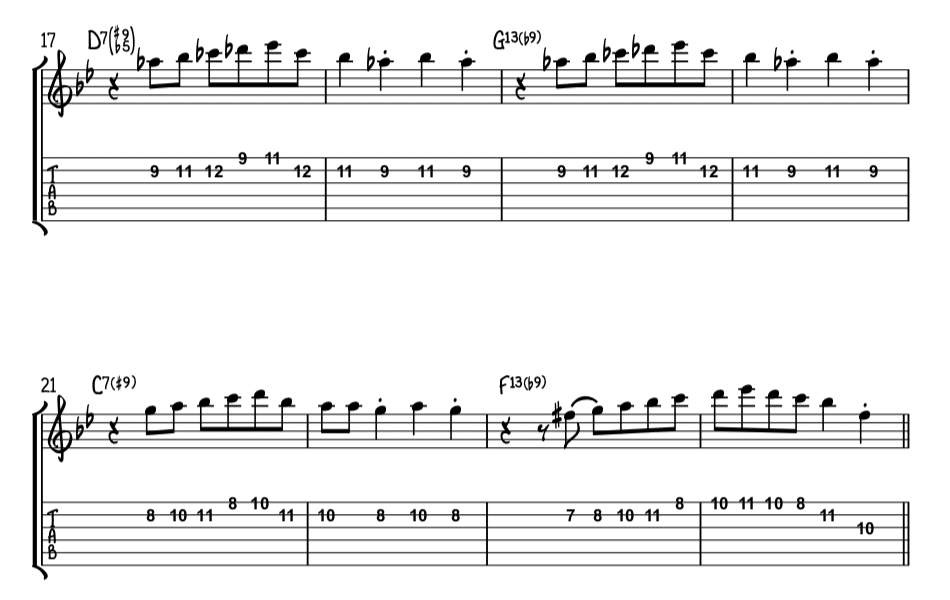One of the first jazz records I heard was this one featuring Sonny Rollins’ jazz classic ‘Oleo’
Miles’s solo on this one is a classic, and the arrangement and playing from all the guys is brilliant.
Most of it is simple to play, and there’s Miles’s directness and simplicity in the playing but there’s also some Miles-isms of weirdness too. For example, have a listen to the first bridge (0:53) where he plays a simple line of the first 5 notes of the Ab minor scale over the D7, then plays the same line over the G7, then shifts it down a semitone for the C7 and caps it off with a similar but tweaked version over the F7. Simple, but strange!

Anyhow, if you’d like to learn Miles’s solo on Oleo, come and join Electric Campfire where I’ve recorded a series of 8 videos that will walk you through exactly how to play the entire thing on the guitar, plus an extended video on how and what to practise to support your playing, and a whole ‘Rhythm Changes Foundation Workbook’ to make you sound exzellent!
Speak soon!
Mike
Excellent stuff, as always.
Yeah I noticed that when I transcribed this solo. TBH IIRC a lot of his solos of this era have this quality, often massively anticipating chords by a bar or more.
No wonder he invented modal jazz.
But seriously, what I learned from this is that rather than nerdily looking at everything in terms of chord relationships from the root up, sometimes the horizontal momentum and direction of the line will sell. Simply repeating the same line twice creates a surprisingly effective dichotomy of tension and release. And of course the motivic integrity of the line makes it sound logical.
Or – it could have been a mistake that Miles liked. That wouldn’t surprise me.
It’s good to remember. Jazz shouldn’t be perfect, it should be laced with a little bit of chance, which is where great improvisation often comes from because you can’t just rely on your glib licks and devices. My favourite note Kurt Rosenwinkel has yet played is the open D string on Minor Blues on the next step. I honestly think this was a mistake which Kurt took and brilliantly made right with his next phrase.
I also think the altered voicings behind help legitimise the harmonic clashes that would be much more noticeable
Major seventh (Db) on dominant (D7) is not unusual in authentic bebop language on altered dominants though … It’s almost like no-one at jazz school had told them of for it.
Though Ab minor on D7 is not something you see everyday haha.